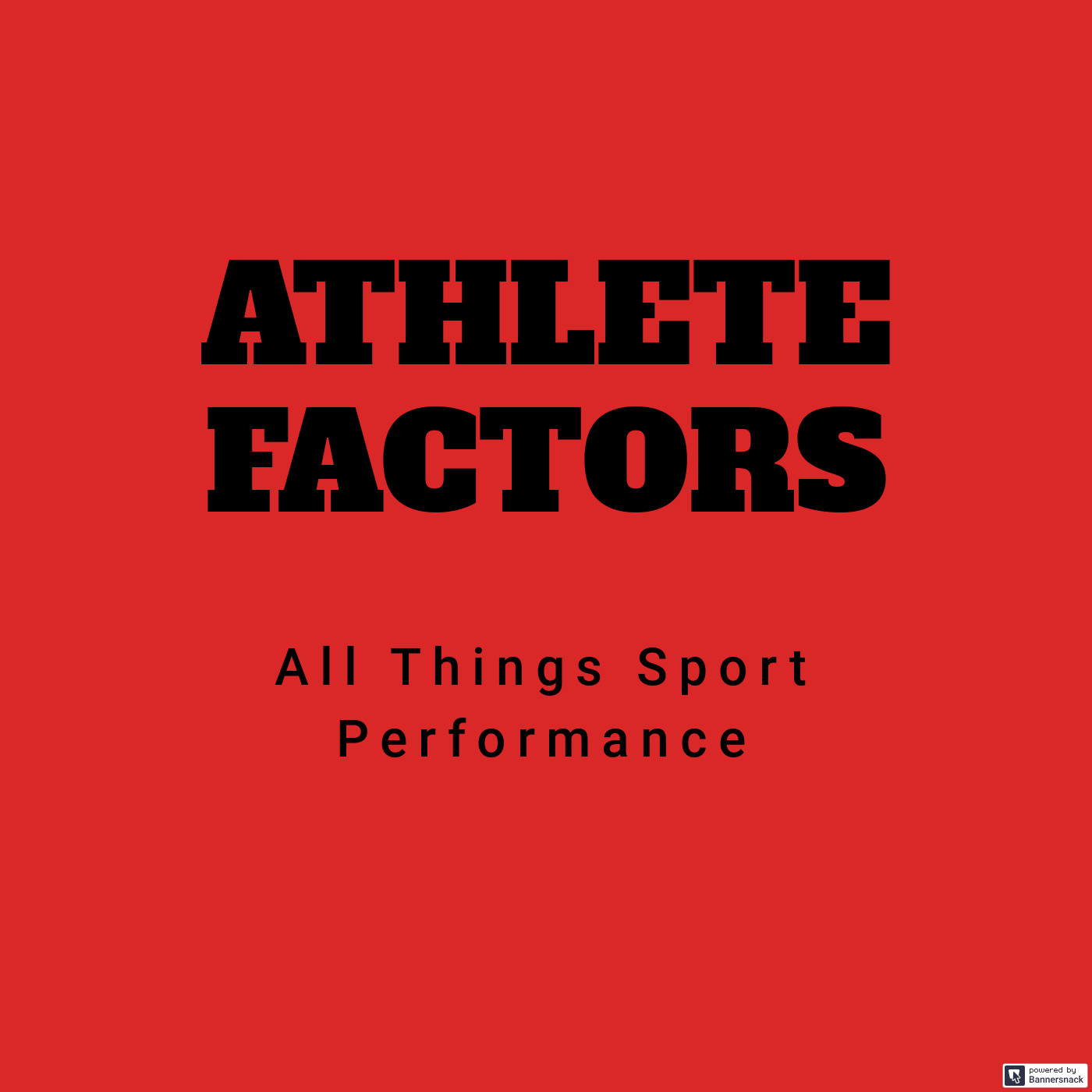Episodes
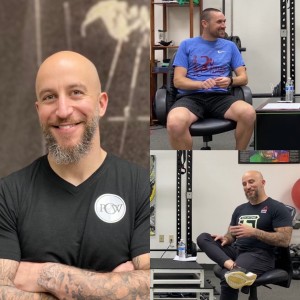
Friday Jun 18, 2021
Friday Jun 18, 2021
In this episode, I talk with Dr. Jonathan Pearlman, a Gonstead Chiropractor in the Dallas/Fort Worth Metroplex. We talk about the history of chiropractic medicine, how modern chiropractic medicine differs from its unique beginnings, the differences between Gonstead and other chiropractic methods, and how the Ketogenic diet changed his life. He also shares some tips for how to find a competent chiropractor
Dr. Pearlman is a GONSTEAD chiropractor in Richardson, Texas, with a background in Kinesiology from the University of Rhode Island. He is a former CrossFit athlete and current recreational runner. He is an evangelist of a metabolically flexible ketogenic lifestyle.
Follow Dr. Pearlman on Instagram: @drpearlmantv
Follow Dr. Pearlman on YouTube: drpearlmantv
Find Dr. Pearlman online: drpearlmantv.com
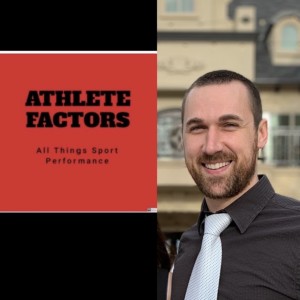
Friday Jun 04, 2021
Friday Jun 04, 2021
In this episode, I recap my vacation to Colorado and Utah, I talk about Erriyon Knighton's new World Junior record in the 200 meters, Hobbs Kessler's new high school 1500 meter record, and how improvements in performance and adaptations to training come from a shift in your priorities. I also talk a little about the upcoming Olympic Trials and Olympics.

Friday May 21, 2021
Friday May 21, 2021
In this episode, I discuss my thoughts and ideas around what I believe to be the most efficient way to improve body composition. I discuss the pro's and con's of altering body composition in a Calorie deficit and Maintenance level Calories, as well as Calorie surplus. I also discuss what I consider Maintenance Range, which is the amount of Calories above and below Maintenance level Calories where body weight may not change, but body composition may make the most change. What are your thoughts on these ideas? Please let me know!
Follow me on Instagram and Twitter: @athletefactors
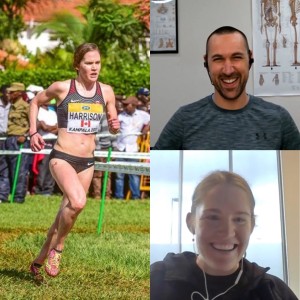
Friday May 14, 2021
Friday May 14, 2021
In this episode, Kate Harrison PhD., joins me to discuss distance running biomechanics. We cover whether or not there is a standard or ideal running form, the tradeoffs between heel-striking and forefoot-striking, the differences between male and female running mechanics, as well as differences between novice and experienced running mechanics. She also provides ways to improve running performance and decrease injury potential.
Kate Harrison is a biomechanist at BOA Technology. At BOA, she researches the role of footwear in athlete performance. As an avid runner, Kate is particularly interested in the role of running biomechanics in injury and performance. She completed her PhD at Virginia Commonwealth University, studying biomechanics of novice runners and how they are influenced by training. Previously, she earned her B.S. and M.S in Exercise Physiology at West Virginia University. As an athlete, Kate was an All-American in the 10,000m and Cross Country for WVU, and has twice represented Canada at the World Cross Country Championships.
Follow Kate on Twitter: @runing_geek
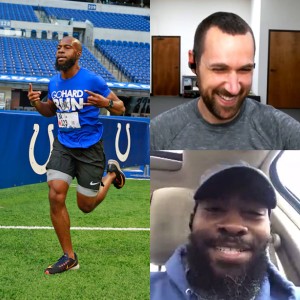
Friday May 07, 2021
Friday May 07, 2021
In this episode, Jason Clinton joins me again (for the 3rd time!) to talk about his newest running goal: breaking 20 minutes in a 5k. We discuss why it is important for people to set difficult and uncomfortable goals, how he is structuring his training to prepare for the pacing demands of his goal, the importance of focusing on certain training variables and data points while reducing focus on other variables, when and how much strength training is necessary, and much more!!
Jason Clinton is a former D2 collegiate athlete now working as a strength, wellness, and running coach. He’s also a running enthusiast having competed in road races from the 5k distance up to the marathon. He currently resides in Northwest Indiana with his wife and three kids.
Follow Jason on Instagram and Twitter: @runjlc

Friday Apr 30, 2021
Friday Apr 30, 2021
In this episode, I talk about what I've been learning and experimenting with in my training. I discuss how I am programming my running, and how it compares and contrasts to what I did in high school and college. I also go over ways to make the "easy" days actually easy, which is very difficult for me. I'm looking for some feedback! What has worked well for you and why, and what hasn't worked well for you and why?
Follow me on Instagram and Twitter: @athletefactors
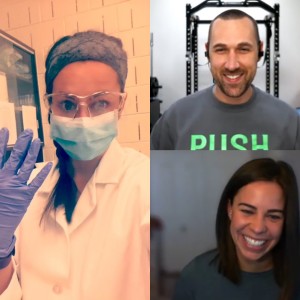
Friday Apr 23, 2021
Friday Apr 23, 2021
"The information provided herein does not reflect the views of the NIH and NIDDK. Opinions expressed are those of Cassie Mitchell."
Guest correction: A master's degree will count towards hours for the CSSD, but is not currently required at this time. There are many eligibility routes for the CISSN, which are outlined on the ISSN (International Society of Sport Nutrition) website.
In this episode, Cassie Mitchell, PhD, RD, joins me to explain the differences and similarities between a Dietician and a Sports Nutritionist, and why finding a team of nutrition experts is the best route for athletes. We also talk about the pro's and con's of Calorie counting and macro tracking, and some of the potential issues that can come up with weight-category athletes or with sports that have an emphasis on a specific body size or type. She also explains why it is so important to have a dietary plan in place for when competitive training and competing come to an end. We also cover what athletes should know about the gut microbiome, gut health, prebiotics, and probiotics, as well as how specific hormones can have direct and indirect effects on body weight and body composition.
Cassie holds a PhD in clinical physiology and metabolism from Virginia Tech and is a registered dietitian (RD). Cassie completed her supervised practice through Phoenix Indian Medical Center in 2019 and is currently working a postdoctoral research fellowship through the Phoenix branch of the National Institute of Diabetes and Digestive and Kidney Diseases (NIDDK).
She has nearly a decade of experience collaborating and conducting research focused on nutrition, exercise and physical activity research in both clinical and community populations, and 4 years of experience providing nutrition counseling. Her degrees and expertise span health promotion, exercise physiology and nutrition science, making her a well-rounded healthcare practitioner.
FInd Cassie here: https://cassiemmitchell.com
Follow Cassie on Instagram: @adventureswithtansy

Friday Apr 16, 2021
Friday Apr 16, 2021
In this episode I discuss length-tension relationships and why just stretching, or even rolling and stretching, may be the exact opposite of what you need to do. When a muscle or joints hurts, we're often told to "stretch it." This can be a serious problem, and the case study I present shows why it can not only be not-helpful, but can actually backfire. If muscle or joint pain occur, find a practitioner who uses assessments to find the actual problem, and then solves it! Just stretching is rarely the solution. If you think you need to stretch, the next question(s) should be: "Why is this muscle excessively tight (overly facilitated), and if it is tight, are there opposing muscles that are excessively "loose" (neurologically inhibited)? Should activating and strengthening the inhibited muscles be part of the process to correct the overly facilitated muscles?"
Follow me on Instagram and Twitter: @athletefactors
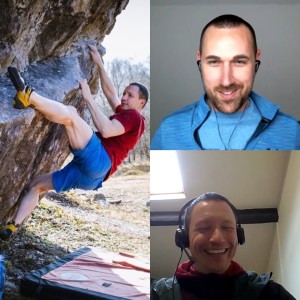
Friday Mar 26, 2021
Friday Mar 26, 2021
In this episode, Andrew Mcvittie, a physiotherapist, climber, and climbing coach, joins me to discuss the journey he's going through to evaluate claims around collagen protein, specifically collagen supplements. We talk about whether collagen protein is a good option to maximize muscle protein synthesis, if digestion has any effects on collagen protein consumption, if collagen consumption or supplementation has any effects on rehabilitation or injury prevention, what types of collagen are best for specific outcomes, and whether the protocol to stimulate collagen synthesis is more important than ingesting collagen. We also go over other dietary modalities to focus on to prevent joint, tendon, and ligament injury, as well as modalities to help speed up recovery and repair if an injury occurs.
As a climber, climbing coach, and physiotherapist (who has also done a fair bit of running and cycling), Andy is ideally placed to provide clarity and direction to your return to climbing and outdoor sports. This background enables a unique, blended, treatment approach. Whilst his focus in coaching is technique based, his passion in physiotherapy is education, strengthening, and a detailed, fully supported, return to sport.
Follow Andy on Instagram: @process.physio
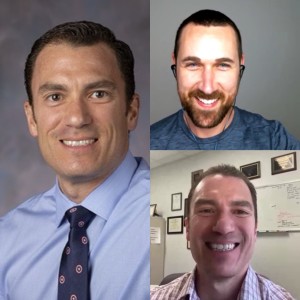
Friday Mar 19, 2021
Friday Mar 19, 2021
In this episode, Dr. David Stukus joins me to discuss asthma and allergies for athletic and non-athletic populations. We talk about some of the common misconceptions surrounding treatment for these conditions, and how changes in weather can have profound effects on individuals dealing with asthma and environmental allergies. Dr. Stukus also gets into some of the research regarding the Covid19 vaccines, discusses how they differ, and how they work. I learned a ton from this conversation!
David Stukus, MD, is an associate professor of Pediatrics in the Division of Allergy and Immunology. Prior to becoming the director of the Food Allergy Treatment Center, Dr. Stukus started the Complex Asthma Clinic at Nationwide Children's Hospital in 2011, which treats children with severe or difficult-to-treat asthma. In addition to providing clinical care for children with all types of allergic conditions, Dr. Stukus participates in clinical research, quality improvement, patient advocacy, and medical education. An internationally recognized keynote speaker, Dr. Stukus has received named lectureships and awards from various national and international organizations. Dr. Stukus holds multiple leadership positions in the American Academy of Allergy, Asthma and Immunology (AAAAI) and the American College of Allergy, Asthma, and Immunology and is one of twelve allergists invited as a member of the Joint Task Force for Practice Parameters. In 2018, Dr. Stukus was invited to become the first Social Media Medical Editor for the AAAAI, where he produces and hosts their podcast "Conversations From the World of Allergy". He has been named a Top Doctor in Pediatric Allergy every year since 2015. Dr. Stukus obtained his medical degree at the University of Pittsburgh School of Medicine. He completed his residency at Nationwide Children's Hospital and his fellowship at the Cleveland Clinic. He is Board Certified in Allergy/Immunology and Pediatrics.
Follow Dr. Stukus on Instagram and Twitter: @AllergyKidsDoc

